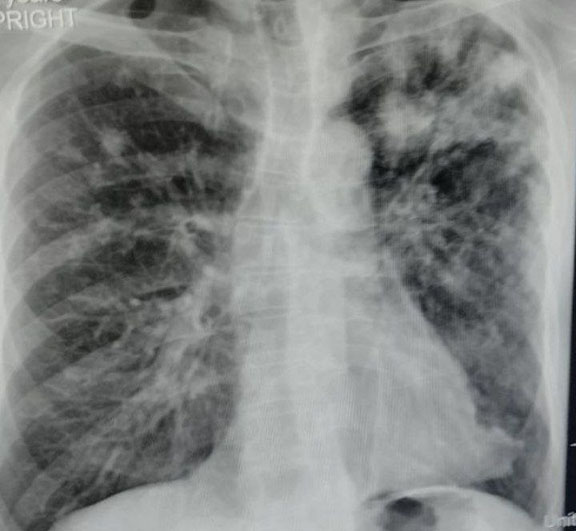
Articles, videos about Tongkat Ali, Black Ginger, and Butea Superba
Articles, videos about optimal sex
Jens Berges' blog
The death of consciousness
So I am dying because of a lung disease. Maybe it is cancer, maybe it is tuberculosis, maybe it is another mycobacterial disease, or maybe aspergillosis (a fungal infection of the lungs). All of these diseases can cause lung "infiltrates", which are unhealthy tissue formations that show as white opacities on chest x-rays. See my chest x-ray of some two years ago here:
If I would not have seen my chest x-ray, I would just describe my condition as a persistent cough, without hemoptysis (the coughing of blood).
I am a 72 year-old Scandinavian man. At my age, the medical prognosis of any of the above conditions, left untreated, is death within a few weeks or months.
This awareness has made me think more about life and death.
When I am dead, I will be gone, and, in a certain way, I feel sorry about this.
But what exactly do I feel sorry about?
I would say that the loss I feel sorry about is the loss of my conscious self.
If my physiological existence is in homeostasis, then my conscious self is the feel-good element in my life. This feel-good condition can be further enhanced when we appreciate the beauty of the world, in which we are on a path of self-realization. In many people, including me, this feel-good condition can reach a peak in sexual pleasure. But I do not deny that an ultimate feel-good state can also be achieved through religious bliss, or a sense of achievement.
We, our bodies, including our brains, and the illusions our brains produce, are all products of evolution. We are geared towards trying to survive, and to reproduce.
Our consciousness has a function in this game. Our consciousness is an image, which our brains create out of a multitude of autonomous control functions. This image is biochemically enhanced with pleasure, which in itself is a brain-generated illusion of a positive state.
The default setting of consciousness is positive, which is a necessity for us to survive and procreate.
If there were no positive consciousness, humans, with their specific intelligence and intellect, could decide, at any time, to just commit suicide.
Apart from its many practical applications, memory is also an important integral part of consciousness.
The default setting of memory is positive. Memory allows us to endure adverse conditions by imagining that happiness may lie ahead after transversing disease, pain, even torture.
When we engage in self-reflection, our consciousness presents itself as a coherent whole. That is why some people equate it with a soul.
But this is a fantasy, possibly with survival benefits.
In reality, consciousness is made up of one-by-one mental representations of autonomous control mechanisms.
Here a basic example.
Our consciousness perceives strawberries as red, with a sweet smell.
In reality, strawberries are not red. They are an assembly of colorless molecules. In reality, they don't have a sweet smell. It's just that these large organic molecules emit gases which induce a signal which is sent from our noses to our brains, which interpret it as sweet.
Then we eat (likely) or don't eat the strawberries. This seems to us as a conscious act of free will.
But it is not. It is a goal-directed behavior initiated autonomously by our brain, and it does not involve free will. The illusion of a conscious decision is formed only after the autonomous behavior has been initiated.
Goal-directed behavior does not need free will or consciousness. The most primitive worms, like Caenorhabditis elegans, display goal-directed behavior, feeding as well as mating, and they do not possess a free will or consciousness.
Caenorhabditis elegans has a body of 959 cells, of which 302 are neurons. The worm’s nervous system is capable of complex behaviors, such as sensory processing (e.g., detecting light, touch, and chemicals), motor control (e.g., movement, feeding, and mating), eben learning and memory.
The human nervous system is basically the same as the nervous system of C. elegans, just more complex.
Consciousness, the "I and me" each of us is in love with, really is just an assembled image, or an illusion (of the kind a magician creates on a stage), of the many autonomous processes of our brains.
Of course, when my nervous system dies, or shortly before, this illusion of consciousness will disintegrate.

